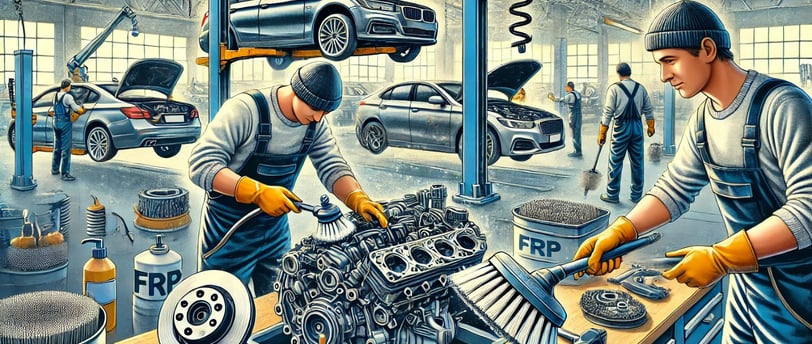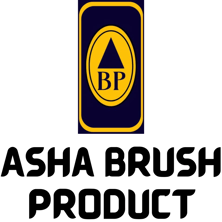Enjoy exclusive quality on premium brushes!
The Essential Role of FRP Brushes in the Automotive Industry
The automotive industry requires constant maintenance and cleaning to ensure vehicle performance, longevity, and safety. From engine cleaning to rust removal, using the right tools is crucial. One such indispensable tool is the FRP (Fiber Reinforced Plastic) brush. These brushes offer superior durability, corrosion resistance, and versatility, making them ideal for various automotive applications, including engine cleaning, brake maintenance, and car detailing.
FRP FIBERGLASS BRUSH
ASHA BRUSH PRODUCT


What is an FRP Brush?
FRP brushes are made from fiber-reinforced plastic, a lightweight yet robust material designed to withstand harsh conditions. Unlike traditional metal brushes, FRP brushes do not rust or corrode, ensuring long-term reliability. Their firm yet flexible bristles allow efficient cleaning without causing damage to delicate components.
Uses of FRP Brushes in the Automotive Industry
1. Engine and Component Cleaning
Engines and mechanical components accumulate grease, dirt, and carbon deposits over time, affecting performance. FRP brushes are used to scrub engine blocks, cylinder heads, and fuel injectors, ensuring efficient combustion and smooth operation.
2. Rust and Corrosion Removal
Metal parts in vehicles, such as chassis components, suspension systems, and brake rotors, are prone to rust. FRP brushes help remove rust and oxidation without scratching or damaging the metal surfaces, extending the lifespan of these parts.
3. Brake and Wheel Maintenance
Brakes accumulate dust and debris from wear and tear, which can affect braking efficiency. FRP brushes are ideal for cleaning brake calipers, rotors, and drums, ensuring optimal performance. They are also useful for scrubbing wheels and removing stubborn grime from rims.
4. Car Exterior and Interior Detailing
Car detailing requires precision and care to maintain the vehicle’s paint, trim, and upholstery. FRP brushes are used to remove dirt from grills, vents, and intricate parts of the car body. Their soft yet durable bristles ensure effective cleaning without leaving scratches.
5. Cleaning Automotive Tools and Equipment
Auto repair shops rely on a variety of tools and machinery that require regular maintenance. FRP brushes help clean tool surfaces, workbenches, and diagnostic equipment, preventing dirt buildup and ensuring a well-maintained workshop.
Advantages of Using FRP Brushes in the Automotive Industry
✔ Corrosion Resistance: Unlike metal brushes, FRP brushes do not rust, making them perfect for cleaning automotive parts exposed to moisture.
✔ Durable and Long-Lasting: Designed for heavy-duty cleaning, they withstand repeated use in demanding environments.
✔ Non-Sparking and Safe: Ideal for cleaning fuel system components and electrical parts without causing sparks.
✔ Lightweight and Easy to Use: Reduces worker fatigue and increases efficiency in automotive maintenance.
✔ Eco-Friendly: Minimizes the need for harsh chemical cleaners, making vehicle maintenance more sustainable.
Conclusion
FRP brushes are essential tools in the automotive industry, offering a versatile, durable, and corrosion-resistant solution for vehicle maintenance. From cleaning engines and brakes to detailing exteriors and removing rust, these brushes enhance efficiency and ensure high-performance results.
By integrating FRP brushes into regular automotive maintenance, mechanics and car owners can extend the lifespan of vehicle components, improve performance, and reduce maintenance costs. Investing in high-quality FRP brushes is a small but impactful step toward better vehicle care and longevity.
